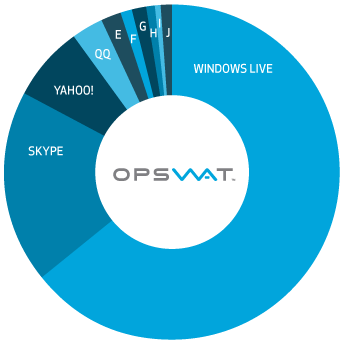Does your mobile phone provide better quality than a typical webcam? I'll test some virtual webcam software for mobile.
The ‘unfederated’ generation
 The telephone network has spent years to create what was the largest federation of anything ever imagined. 1.2 billion telephone lines/numbers in the world and a powerful notion that I can from a simple black desk phone reach nearly anyone in the world by dialing a handful of digits.
The telephone network has spent years to create what was the largest federation of anything ever imagined. 1.2 billion telephone lines/numbers in the world and a powerful notion that I can from a simple black desk phone reach nearly anyone in the world by dialing a handful of digits.
It’s been a tough ride, there were competing standards, nationalistic concerns and the sheer lack of available technology. The result is a complex & specialized network full of mismatched standards solely for voice. Truly a miracle that any call gets connected. Billions have been invested to make it all work. And now that it all finally works, it’s become a $0 billion business. Don’t you just love technology!
WebRTC brings great simplification to how we communicate and simple has a long history of winning out (so if you’re placing bets). It’s not hard to click or type a URL to call someone with WebRTC. However, this is a massive change from how things worked in the past. With WebRTC, the called party is in charge of the experience, no different than a web page.
Google, likely because they’re really smart, decided not to dictate a standard for signaling. Signaling is up to the programmer to select. Wanna use SIP (god help you), your own homegrown REST API, XHR, send it over http, socket.io, websockets – it’s all your choice. I particularly like Chris Ball’s serverless WebRTC example (you literally could lick a stamp and mail the caller the signaling credentials to create a connection).*
The lack of a standard for signaling also means that WebRTC is by default unfederated. One WebRTC application can’t really talk to another. But then again, it’s not supposed to. It’s like saying all web pages should look the same. They don’t and they shouldn’t and you’re mostly fine with this.
 Instant messaging system are equally unfederated. Yahoo doesn’t talk to AOL who doesn’t talk to Microsoft. XMPP appears to be dying off and multi-headed IM clients like IMO, Meebo and Trillian have not found a viable business model. With the acquisition of Skype, Microsoft (remember them) has suddenly found they have > 80% market share of Instant Messaging.
Instant messaging system are equally unfederated. Yahoo doesn’t talk to AOL who doesn’t talk to Microsoft. XMPP appears to be dying off and multi-headed IM clients like IMO, Meebo and Trillian have not found a viable business model. With the acquisition of Skype, Microsoft (remember them) has suddenly found they have > 80% market share of Instant Messaging.
I’ll give you a G and two O’s to help you figure out whose none too happy with Microsoft’s market share of IM.
I feel like a kid waiting for Christmas. Clearly Google has something deeper planned for WebRTC. But what is it? Fine enough we all get WebRTC and can go make neat-o applications. But nothing in life is free. Can Google leverage our work to help them further their cause to destroy Microsoft? Could Google discard XMPP and re-emerge with a new federation idea, this time firmly within their control, using WebRTC and perhaps leveraging their Google Cloud. Oh but Christmas isn’t until December, I guess we’ll all have to wait.
* here’s the serverless WebRTC app running on my server, you must be running Firefox Nightly for it to work.